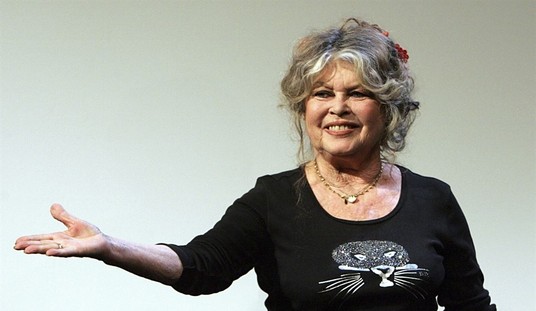The release of the Papal encyclical “Laudato Si” (Praise Be To You) has unleashed an industry, hopefully environmentally sensitive, on how this really puts conservative Catholics in a predicament. For instance:
- Pope Makes Climate Change An Issue For GOP Presidential Candidates
Pope’s Views on Climate Change Add Pressure to Catholic Candidates
Father John Neuhaus’s Benedict Arnold, Damon Linker, may very well take the cake for stupidity. In the age of Pope Francis, can a good Republican be a good Catholic?*
The rules are simple. Every time a Republican who is a Catholic is asked for an opinion on the encyclical, place him into one of two categories: the Catholic Republicans or the Republican Catholics.
The difference between the categories depends on which term is doing the modifying. A Catholic Republican is a Republican whose Catholicism comes first, whose faith and devotion to the teaching authority of the Magisterium of the church takes precedence when a conflict or tension arises between it and loyalty to the party’s ideology, policy platform, and electoral prospects. A Republican Catholic, on the other hand, is a Republican who puts his devotion to the party ahead of his faith — or at least adjusts what he takes to be the demands of his faith in such a way that the conflict or tension seems to lessen or disappear.
As Linker knows, this is just juvenile and dishonest argumentation. Viewed in its most negative way, the encyclical is not a threat to the teaching authority of the Magesterium. The Magesterium’s teaching authority doesn’t extend to economic and scientific theory and to the extent the encyclical hitches the Pope’s authority to demonstrably fake and corrupt scientific research it simply beclowns Pope Francis and the Church. This is not a good thing, but neither is my Salvation put in jeopardy by refusing to go along with gaslighting.
But even were Linker remotely close to having the capacity for integrity, he’d be forced to note that it is futile to even ask whether a liberal can be a good Catholic. Because this is a question that is simply not worth the energy of analyzing.
The same encyclical that Linker imagines makes life so difficult for conservative Catholics makes it an insufferable Hell for any liberal.
120. …. Since everything is interrelated, concern for the protection of nature is also incompatible with the justification of abortion. How can we genuinely teach the importance of concern for other vulnerable beings, however troublesome or inconvenient they may be, if we fail to protect a human embryo, even when its presence is uncomfortable and creates difficulties
123. ….In the absence of objective truths or sound principles other than the satisfaction of our own desires and immediate needs, what limits can be placed on human trafficking, organized crime, the drug trade, commerce in blood diamonds and the fur of endangered species? Is it not the same relativistic logic which justifies buying the organs of the poor for resale or use in experimentation, or eliminating children because they are not what their parents wanted?
155. ….The acceptance of our bodies as God’s gift is vital for welcoming and accepting the entire world as a gift from the Father and our common home, whereas thinking that we enjoy absolute power over our own bodies turns, often subtly, into thinking that we enjoy absolute power over creation. Learning to accept our body, to care for it and to respect its fullest meaning, is an essential element of any genuine human ecology. Also, valuing one’s own body in its femininity or masculinity is necessary if I am going to be able to recognize myself in an encounter with someone who is different. In this way we can joyfully accept the specific gifts of another man or woman, the work of God the Creator, and find mutual enrichment. It is not a healthy attitude which would seek “to cancel out sexual difference because it no longer knows how to confront it.”
When taken into context with actual doctrinal prohibitions on abortion, homosexual relationships, same sex marriage, in vitro fertilization, euthanasia, pre- and extra-marital sex, and contraception the difference is clear. The US Conference of Catholic Bishops has issued a pamphlet called Forming Consciences for Faithful Citizenship in which it gives Catholics who actually go to Church advice on how to navigate making political decisions when the choices aren’t cut and dried.
The Church equips its members to address political and social questions by helping them to develop a well-formed conscience. Catholics have a serious and lifelong obligation to form their consciences in accord with human reason and the teaching of the Church. Conscience is not something that allows us to justify doing whatever we want, nor is it a mere “feeling” about what we should or should not do. Rather, conscience is the voice of God resounding in the human heart, revealing the truth to us and calling us to do what is good while shunning what is evil. Conscience always requires serious attempts to make sound moral judgments based on the truths of our faith. As stated in the Catechism of the Catholic Church,“Conscience is a judgment of reason whereby the human person recognizes the moral quality of a concrete act that he is going to perform, is in the process of performing, or has already completed. In all he says and does, man is obliged to follow faithfully what he knows to be just and right”.
This dovetails with the Catholic principle of “prudential judgment.” This doesn’t give Catholics license to pick and choose what they believe. I, personally, think this encyclical is gravely misguided and will, in the long run, to much more damage to the credibility of the Church than it will affect “global warming.” Just because I think the Pope bought a supertanker-load of snake oil doesn’t mean that I disagree with him in principle. I don’t. For instance:
94. The rich and the poor have equal dignity, for “the Lord is the maker of them all” (Prov 22:2). “He himself made both small and great” (Wis 6:7), and “he makes his sun rise on the evil and on the good” (Mt 5:45). This has practical consequences, such as those pointed out by the bishops of Paraguay: “Every campesino has a natural right to possess a reasonable allotment of land where he can establish his home, work for subsistence of his family and a secure life. This right must be guaranteed so that its exercise is not illusory but real. That means that apart from the ownership of property, rural people must have access to means of technical education, credit, insurance, and markets”.
Where we would part company is the prescription. I don’t think giving a Paraguayan campesino a piece of land where he can try to scratch out an existence; a piece of land that will eventually be subdivided among his children ensuring that they can’t support their families and the cycle of poverty is perpetuated. I don’t think it gives a man any particular security to know that his family is perpetually on the knife’s edge of starvation and where he has the inability to develop a surplus that can carry him through bad times. I don’t think it gives any great hope for access to “technical education, credit, insurance, and markets” when a man is engaged in subsistence farming. In fact, what time does he have for the first and what need does he have of the other? In my view, this statement endorses serfdom and dependence. The principles upon which we should base our discussion our human dignity and the ability to improve oneself so that another generation isn’t living on the verge of poverty. Disagreeing with the prescription proposed by the Magesterium is not the same as rejecting the teaching.
The Papal encyclical poses some valuable insights on the interrelationship of Man to Earth and to one another. If offers a sober reflection on where technological advance and cultural change lead when they are unmoored from Truth and Morality. There is nothing in there that any Catholic should feel like he has to run from. By the same token, there is no moral reason why anyone has to agree with scientific and economic arguments and prescriptions that are a matter of preference and not of theology. In other words, it is no harder to be a Republican Catholic today that it was at any time in the past thirty years and it remains impossible to be Catholic Democrat.
* note: we all recognize on this list that the terms GOP and Republican ≠ conservative; but to the media the terms are synonymous.













Join the conversation as a VIP Member